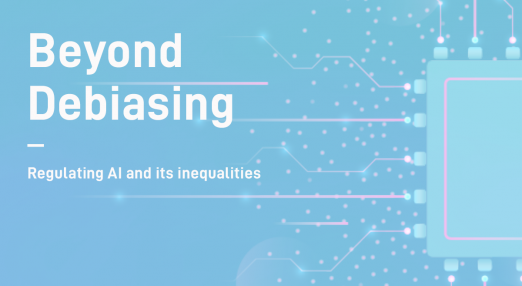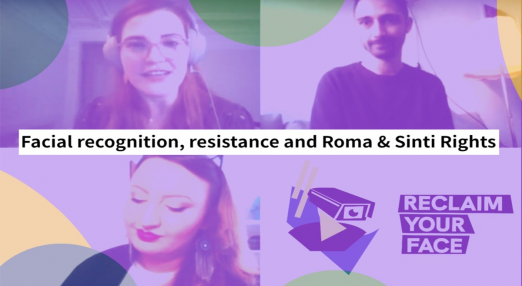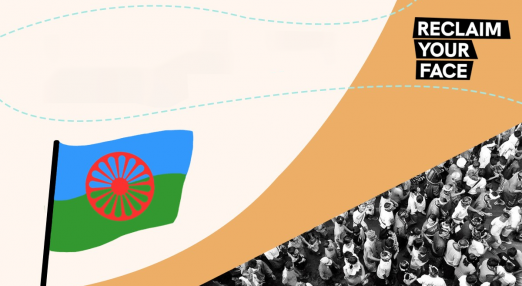If you want digital policy done right, propose it yourself
Fed up with the digital policies in Germany or the lack thereof in the past decades, EDRi member Chaos Computer Club e.V. (CCC) submitted their own proposal for a digital agenda of the new German government. Digital policy has been severely neglected by past governments. This explains the extended list of topics being tackled in this proposal.
Filter resources
-

If you want digital policy done right, propose it yourself
Fed up with the digital policies in Germany or the lack thereof in the past decades, EDRi member Chaos Computer Club e.V. (CCC) submitted their own proposal for a digital agenda of the new German government. Digital policy has been severely neglected by past governments. This explains the extended list of topics being tackled in this proposal.
Read more
-

Closing the Loopholes in EU’s Net Neutrality Framework
The European net neutrality rules are being reformed to fix one of the biggest loopholes in the EU‘s framework: Zero-Rating. EDRi has been vocal about the dangers of Zero-Rating, a practice by which telecoms companies discriminate between online services by making some data traffic more expensive than other such traffic. Prompted by three judgments of the Court of Justice of the European Union, the Board of European Regulators for Electronic Communications (BEREC) has acknowledged that their previous 2016 Guidelines on how to enforce the Net Neutrality Regulation have to be overhauled. The direction of the reform is looking to confirm the previous submissions of EDRi over the past six years and today we add another submission to BEREC with the hope of fixing the last loophole in Europe’s net neutrality framework.
Read more
-

Top system and the right to repair
Some questions take thirty years to answer, even if just partially. In the early ’90s of the previous century, the EU legislative process was a battleground of American tech behemoths and some national champions from the EU. The legislative dossier was what was to become the 1991 Software Directive. And it was seen as an opportunity for European tech companies and others to break the hegemony of IBM through interoperability.
Read more
-

Building a coalition for Digital Dignity
In 2020 EDRi started to build the ‘Digital Dignity Coalition’, a group of organisations and activists active at the EU level dedicated to upholding rights in digital spaces and resisting harmful uses of technology. We’ve been organising to understand and resist how technological practices differentiate, target and experiment on communities at the margins - this article sets out what we’ve done so far.
Read more
-

Digital Dignity Document Pool
Digital technologies can have a profound effect on our societies, but sufficient attention is rarely given to how certain applications differentiate between, target and experiment on communities at the margins. This document pool gathers resources for those that are interested in learning about and contesting the harms to dignity and equality that arise from uses of technology and data.
Read more
-

Booklet: If AI is the problem, is debiasing the solution?
The development and deployment of artificial intelligence (AI) in all areas of public life have raised many concerns about the harmful consequences on society, in particular the impact on marginalised communities. EDRi's latest report "Beyond Debiasing: Regulating AI and its Inequalities", authored by Agathe Balayn and Dr. Seda Gürses,* argues that policymakers must tackle the root causes of the power imbalances caused by the pervasive use of AI systems. In promoting technical ‘debiasing’ as the main solution to AI driven structural inequality, we risk vastly underestimating the scale of the social, economic and political problems AI systems can inflict.
Read more
-

EU: €5 million for new wiretapping technologies
The European Commission has made €5 million available for research projects that aim to help law enforcement authorities maintain the ability to intercept telecommunications – something which is threatened by the adoption of new technologies such as 5G networks and “edge computing”.
Read more
-

CJEU in surprise judgment: zero rating is illegal under EU law
Europe’s highest court has put an end to a long-standing legal battle around the EU’s Net Neutrality Regulation. In a landmark judgement published last week, the Court of Justice of the European Union (CJEU) confirmed what EDRi and its members have argued for years: that zero rating is illegal under EU law because it violates the neutrality obligations of internet access providers
Read more
-

Facebook’s dominance makes it difficult to question the truth
What we as a society understand as true is changeable, and questioning the truth can only be done with a healthy public debate. But the dominance of the platforms that facilitate our public debate makes difficult.
Read more
-

Roma & Sinti rights, Resistance & Facial Recognition: RYF in Conversation…
For communities that have been historically sidelined, the promises of digitalisation can instead become a vessel for yet more discrimination and unequal treatment. Facial recognition in particular has a sinister and dark history which links to the persecution of Romani communities. If you missed our webinar on Roma and Sinti rights and the rise of facial recognition across Europe, you can catch up here and learn what the digital rights community can and should do!
Read more
-

Romani rights and biometric mass surveillance
The rights of Romani people should be an important topic for anyone that cares about digital rights. In this blog, hear from experts in Roma, Sinti and digital rights about why facial recognition is an important issue (and what the rest of the digital rights community can learn), and check out the Reclaim Your Face campaign’s first ever resource in the Sinti language!
Read more
-

NGO demands disclosure of A1 Telekom Austria Group’s entanglements in Belarus
EDRi's member epicenter.works protested in front of the A1 Telekom Austria Group’s building in June 2021 to raise awareness of the involvement of the partially state-owned company in the internet shutdowns in Belarus that unfolded around the controversial election of the long-term dictator Lukaschenka. The protest was accompanied by attacks by the company against the non-profit NGO.
Read more
